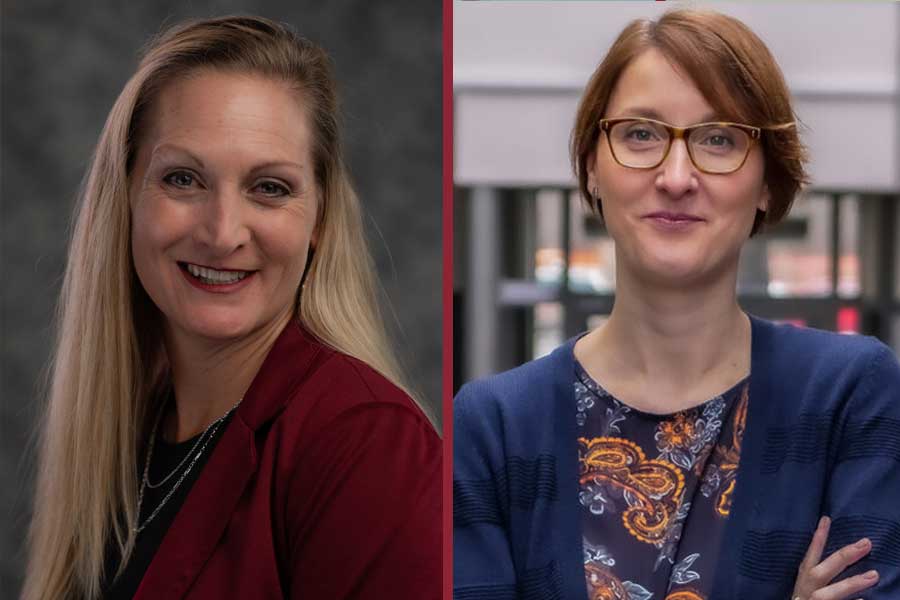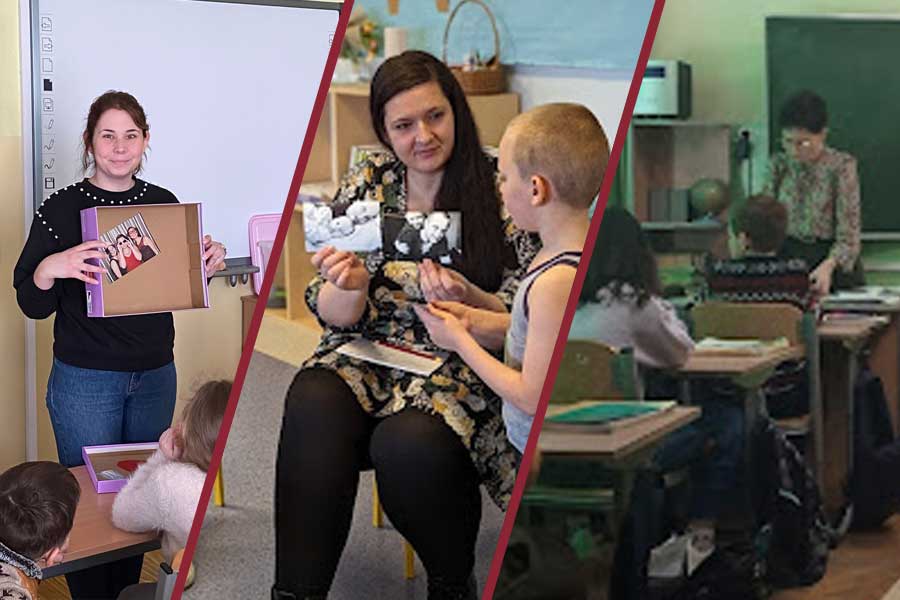Professor supports teachers of Ukrainian refugees

July 12, 2023 — DENTON — Bombs fell. Tanks rolled. Soldiers marched.
The war in Ukraine began in February 2022, scattering refugees across the globe. Nearly 13 million Ukrainian refugees have crossed into neighboring Poland since the war began — mostly women and children.
They are children who don’t speak Polish, but mainly Russian and Ukrainian. Children who still need to learn, who need school, who need teachers.
War can have immeasurable impact, but Professor Mandy Stewart, PhD, is discovering that partnerships can, too. Stewart teamed with Barbara Muszyńska, PhD, a Fulbright Scholar from Poland who visited TWU last year, to provide online professional development in biliteracy to three Polish teachers focusing on Ukrainian refugee students.
“Every time I see the war in Ukraine on the news, I’m thankful I am able to use my area of expertise to make a small difference in the lives of those affected by this horrible war,” Stewart said. “Supporting these children through providing their teachers with professional development is the most important thing I’ve done in my 23-year career as an educator."
/prod01/twu-cdn-pxl/media/images/literacy-learning/Ukraine3.jpg)
Stewart specializes in biliteracy, and the professional development she provided is grounded in her own research conducted over the last 12 years with immigrant and refugee students.
Biliteracy is the ability to read, write and communicate in two or more languages. Incorporating one’s first language into learning another language can benefit the learner as they transfer between languages. Celebrating and utilizing a student’s cultural and linguistic diversity in learning activities promotes more active participation and self-confidence in children and young people as they learn a new language.
From here to there
The partnership does not end with Stewart and Muszyńska. Stewart, a professor in Literacy & Learning, built the Master of Arts in Multilingual and Multicultural Studies (MMS) at TWU, and her students participated in this endeavor in several ways.
Maria Torres, an MMS student, is engaging in research locally with two of her own students from Ukraine. Torres and Stewart created innovative biliteracy ideas for Torres’ students and shared them with the Polish teachers.
Another MMS student, Monica Hughes, who also received a Certificate of Biliteracy at TWU, developed an activity that led to great success with the Ukrainian students in Polish classrooms. Students created an “identity box” with items important to them and shared in class using the language they are learning, Polish, and their first language.
Powerful results

One boy who rarely spoke due to multiple traumas chose to share his identity box, speaking about the items inside. His mother cried tears of happiness at him talking. A father was shocked his son did so well in Polish because the boy had barely spoken a word for three months in class.
Teachers created identity boxes of their own and shared them with students, fostering a deeper relationship with the children — a result teachers also observed among the students.
While positive moments and breakthroughs happened often, effects of war were still palpable even in the Polish classroom. Some students were too emotional to present their own boxes. A Ukrainian teaching assistant was moved to tears because she remembered a similar box of her own at home in Ukraine — a box now lost forever.
Muszyńska, a professor at the University of Lower Silesia in Wrocław, Poland, is the cultural and language broker who assured the professional development Stewart taught was appropriate for the Polish teachers’ context. Muszyńska is familiar with the content from participating in Stewart’s graduate classes while she was at TWU and translated the new ideas in an accessible and adaptable way for the Polish teachers.
/prod01/twu-cdn-pxl/media/images/literacy-learning/Ukraine1.jpg)
Polish teachers in the project who worked with Ukrainian refugee students, ages 6-12, were Katarzyna Pajewska, Anna Nankowska, and Małgorzata Jaszczuk-Surma, Dr. n. hum. They participated in monthly professional development sessions online with Stewart and Muszyńska.
Stewart and Muszyńska conducted research throughout the project. Muszyńska followed up with focus groups to gather reactions from teachers and visited their classrooms to observe new practices applied in class.
The professors will share their research in both Polish and English this summer with hopes that its positive impact continues across Poland and beyond.
Media Contact
Joshua Flanagan
Digital Content Manager
940-898-3436
jflanagan1@twu.edu
Page last updated 2:07 PM, February 26, 2024